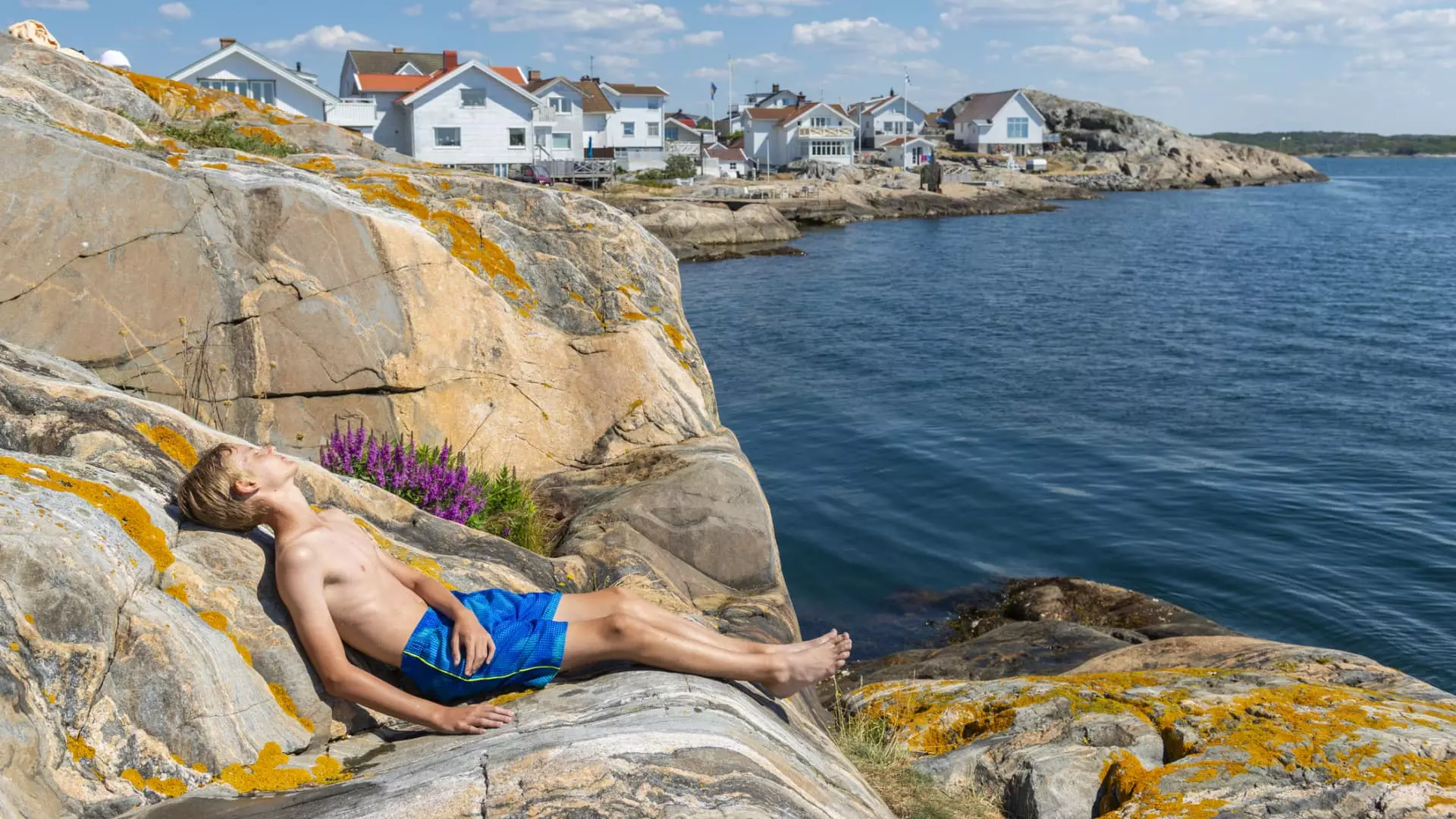As the summer heat continues to scorch southern Europe, travelers are rethinking their vacation plans to avoid the sweltering temperatures. This shift in interest may be a temporary response to an uncommon heatwave or a reflection of a larger climate change pattern. However, some tourists are not willing to wait and find out. Instead, they are opting for alternative destinations that offer cooler and more comfortable experiences.
The Rise of the Scandi Summer
Travel operators and data from the European Travel Commission reveal a significant change in travel preferences. Interest in visiting Mediterranean destinations decreased by 10% from June to November, while bookings to Scandinavian countries such as Finland, Norway, Sweden, and Iceland increased by 37%. This “Scandi summer” trend is not limited to luxury travel operators. Even vacation home renters are redirecting their searches, with German travelers showing a growing interest in southern Norway and southern Swedish provinces.
Apart from Scandinavia, there is a noticeable surge in interest for other destinations that offer relief from the summer heat. Edinburgh, Scotland; Riga, Latvia; and Tallinn, Estonia have witnessed a significant increase in vacation home searches across Europe. Surprisingly, the search interest for the southern Swedish province of Smaland rivals that of popular Spanish and Italian beach towns. Spain, being a top travel destination, has also experienced a shift in travel interest towards its northern coast and culinary powerhouse regions like the Basque Country.
The unpredictability of extreme weather conditions during the summer has led many travelers to reconsider their plans entirely. Some are now opting for destinations like the Lofoten Islands in Norway, Canada, U.S. National Parks, and European hidden gems like Slovenia. This shift towards alternative destinations that offer cooler climates and unique experiences is reshaping the travel landscape.
To avoid the dangers and discomfort associated with heatwaves, wildfires, flooding, and hurricanes, more travelers are choosing “shoulder season travel.” This period, just before or after the peak travel season, offers lower hotel rates, greater availability, and more favorable temperatures. Puglia and Sicily in Italy are particularly popular during the fall season, providing warm and sunny weather well into October while ensuring a more relaxed and crowd-free experience.
Rising summer temperatures in Europe have led to a growing interest in destinations with higher elevations and mountain ranges. The Dolomites in Italy, the Swiss and Austrian Alps, and places like Lucerne and Solden are experiencing renewed interest from travelers. Even countries known for their hot climates, like Morocco, offer cool spots at higher altitudes. While Marrakech may be toasty in the summer, the Atlas Mountains provide cooler temperatures, especially at night. Traveling during the low season in Morocco not only ensures a quieter experience but also better value for money.
Despite the challenges posed by extreme heat, wildfires, and increased flight prices, many travelers are choosing to stick with their plans. Booking data from LemonLime Travel and Omio reveals that cancellations remain low, with travelers maintaining their itineraries to destinations such as Greece. Insurance companies like InsureMyTrip and Squaremouth have not observed a significant increase in requests for changes or cancellations due to the heatwave, suggesting that travelers are determined to enjoy their summer vacations regardless of the circumstances.
As the summer heatwave continues in southern Europe, travelers are adapting to the changing climate patterns and seeking out alternative destinations. The rise of the “Scandi summer” trend, along with the increased interest in cooler spots and shoulder season travel, demonstrates a shift in travel preferences. These evolving trends reflect the resilience and adaptability of travelers, as they continue to prioritize their summer getaways while avoiding the discomfort and risks associated with extreme weather conditions.


Leave a Reply